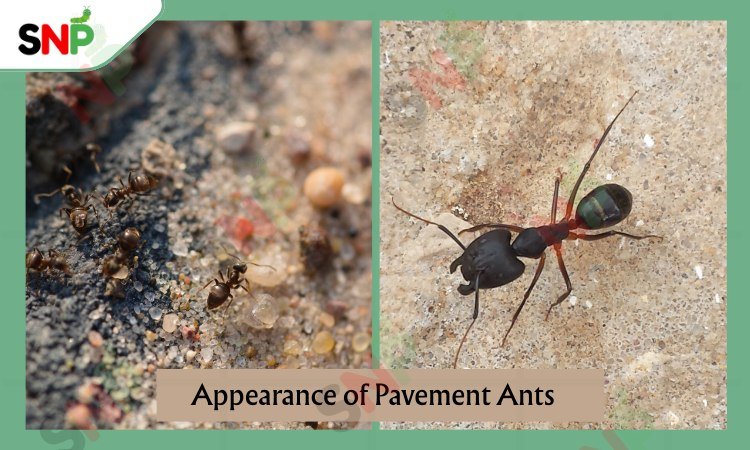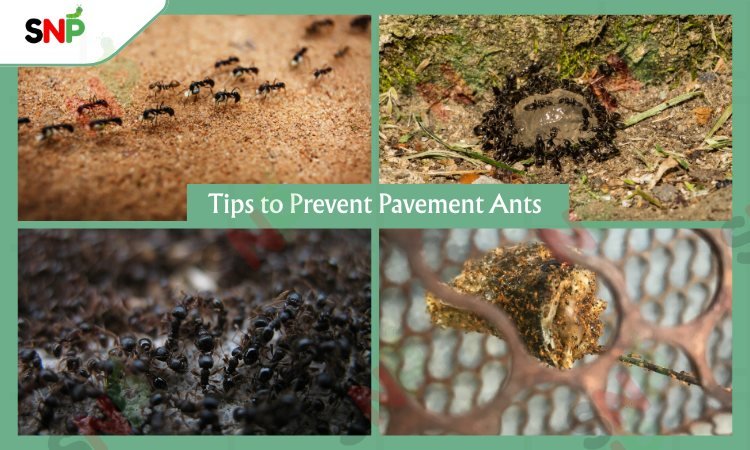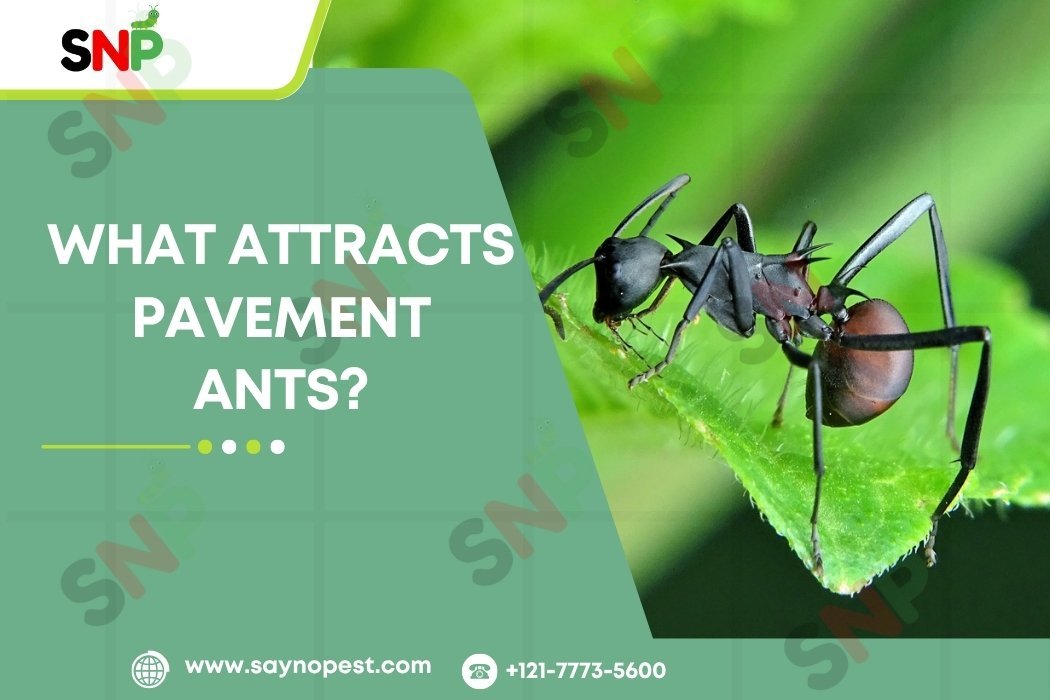Knowing what attracts pavement ants becomes a very important step for homeowners who are after the most effective pest management solutions. Pavement ants are a species that most definitely have topped the chart of most persistent house insect pest around the United States.
Appearance of Pavement Ants
Dark brown to black in color, these small insects are known for their notorious behavior of establishing their colonies under sidewalks, driveways, and concrete structures. These tiny invaders have a length of approximately ⅛ inch and distinguish themselves by the small mounds of excavated soil they make around pavement cracks.
The ant colonies of pavement ants can consist of 3000 to 10,000 ants, but some colonies reach 30,000 ants in number. More than one queen in a larger colony makes it harder to get rid of these pests.

What Attracts Pavement Ants to Your Yard?
- Food Sources
Pavement ants love all kinds of food. Be it sweet or not, and thus your home becomes a very attractive place to them.
The list below represents the ants main food that they like:
- Greasy food
- Meat
- Nuts
- Cheese
- Honey
- Jam and cookies
- Bread
- Crackers, and what not!
- The ants will also eat honeydew from aphids, dead insects, plant juices, pet food, garbage scraps, etc.
These ants are very active in searching for carbohydrates and proteins, and among other things, grease, and meat are the most preferred by them. The ants feed on various things such as sugar, nectar, tiny seeds, and the remains of insects.
2. Moisture
What attracts pavement ants is not only related to food but also to the moisture sources. These creatures only survive if they have continuous water supply, and are humid. Besides, kitchens and bathrooms are the most favorable due to the higher moisture levels that they have.
Moreover, leaky faucets, dripping pipes, pet water bowls, and condensation around appliances will turn out to be perfect spots for them.
3. Warmth and Shelter
Pavement ants have a very strong preference for warm environments. Within homes, these bugs go wherever there is heat. They make their nests in the closest distance to where the heating apparatus, furnace, air conditioning, and other such parts of the building.
The perfect temperature accordingly to pavement ant’s needs l is between 21-27 degrees Celsius.
During winters, the problem with the pavement ant is more severe because outdoor food becomes scarce. So, they invade homes.
4. Structural Entry Points
Another point in what attracts pavement ants is that they need openings to enter homes. In order for them to be undisturbed, they look for crevices in the foundation, basement windows and doors, and gaps around places where they can run their wires through. The most common places they use to get in are the weep holes, the areas where the pipes go through the walls, and the cracks that are in the basement walls or concrete floors.
5 DIY Control Tips to Prevent Pavement Ants

1. Eliminate Food Sources Completely
- Clean all the spaces daily.
- Keep food in airtight cans and clean the crumbs, spills, and any other residue immediately.
- Empty the trash daily and keep it in a closed container outside the house.
- Pet food needs special care, thus bowls should be removed after feeding and feeding areas should be cleaned.
2. Create Natural Repellent Barriers
- Essential oils can be considered as a powerful weapon for nature against the things that bring to the pests that attract pavement ants. The oil of spear mint is one of the strongest natural repellents for ants. Make up a spray solution with 30-40 drops of essential oil, 30 drops of alcohol, and 60ml of distilled water. The list of good oils goes on and includes tea tree, lemon, eucalyptus, cinnamon, and clove oils.
- Top areas where ants tend to come in, for example, doorways and windows, with essential oil spray.
- Do not forget to reapply the solution regularly, particularly after cleaning, and also when the ants come back.
- Mix oils to obtain a more efficient formula – peppermint, clove, and citrus oils are the perfect combination.
- Vinegar is another natural alternative since a half and half mixture of white vinegar and water will erase the scent that ants have been using to follow.
3. Deploy Strategic Bait Systems
Ant baits that are homemade attract the needs of pavement ants and at the same time kill their entire colonies.
Put stations with poison along the trails where ants are seen and near the place where they get in.
Provide baits to the ants without any restrictions as they will carry the poison to the nests thus killing queens and larvae.
It’s important to keep the bait stations until no ant activity is noticed at all. Also, refill the baits if it is needed.
4. Seal Entry Points
By systematically sealing entry points, you definitely make it harder for ants to find their way into your house. To fill cracks use either caulk or a concrete patch.
Do it around windows and doors, weatherstripping will be applied so that gaps will be eliminated. Sealing will be done at the place where pipes and wires enter the home.
Fill gaps of the joints formed during the expansion of the slabs and mend the mortar parts that are damaged in the brick facades. Be extra careful in the areas that are closest to heat sources because that is where ants mostly enter. But, when bait systems are used, it is better to wait until ants are completely inactive before sealing. If sealing is done before it is time, the ants will not be able to carry the poison to their nests, hence, the treatment will be ineffective.
5. Modify Environmental Conditions
- Clean gutters regularly and direct downspout water away from buildings.
- Fix all leaking plumbing, including faucets, pipes, and irrigation systems. Remove standing water sources around the property.
- Trim vegetation so there is at least six feet of clearance from structures. Replace wood mulch with pea gravel to minimize nesting areas.
- Remove potential nesting sites not only under landscape stones but also under pavers and other objects that are on the ground level.
Conclusion
Knowing what attracts pavement ants gives the homeowners the power to carry out prevention strategies that are targeted. These invaders are very persistent as they look for food sources, moisture, warmth, and open entry points within homes. It is not enough to only control one factor; all of them have to be considered if one wants to eliminate the infestation of pavement ant.

Leave a Reply